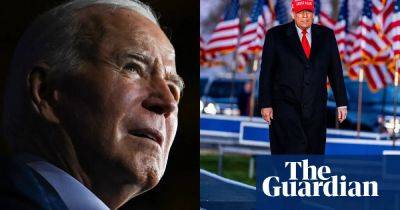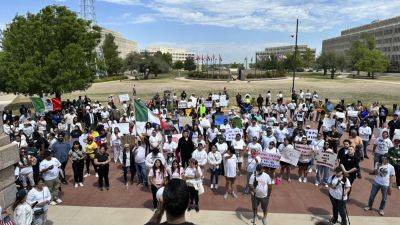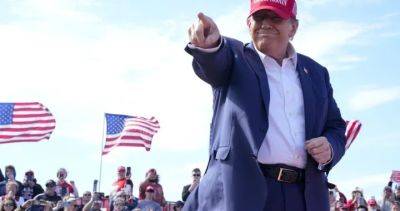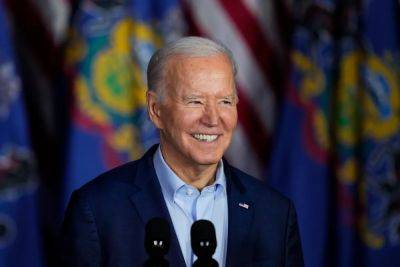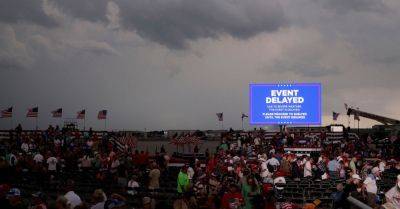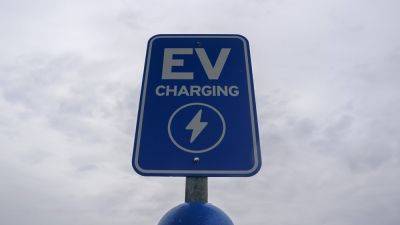Polls can’t predict the next US president this early – but they can teach us
In recent months, polling has generally showed President Joe Biden running behind his Republican challenger, Donald Trump, by a small margin, particularly in swing states like Georgia and Arizona. But election polling began to fluctuate after Biden’s State of the Union speech last month.
The question is how much meaning observers should ascribe to polls in April, seven months ahead of the election.
“We’re pretty well beyond the point where it starts becoming meaningful,” said Dave Wasserman, editor at the election-analysis newsletter the Cook Political Report. “We’re seeing a lot of variation in polls, which is not new.”
Most political partisans have long made up their minds about their preferred candidate. But large numbers of voters aren’t really paying attention to the election campaigns yet.
“The polling has a lot of noise because of polarization,” said Rachel Bitecofer, a political scientist, campaign strategist and author of Hit ’Em Where It Hurts. “The polling is measuring latent partisanship. … But, you know, at the end of the day, it is going to be a 50-50 race coming into election day. I don’t know why folks are having a hard time accepting that.”
The discipline of political polling comes under perennial challenge every election cycle, occasionally metastasizing into cancerous error like “unskewed polls”. Pollsters try to focus on building a demographic model of the electorate that’s accurate, to weight the results of a poll correctly. If a pollster under- or overestimates the proportion of, say, Latino voters or college-educated voters or young voters on election day, a poll will reflect that error.
But pollsters also treat their formulae for weighting polls like a trade secret akin to the recipe for Coca-Cola, said


